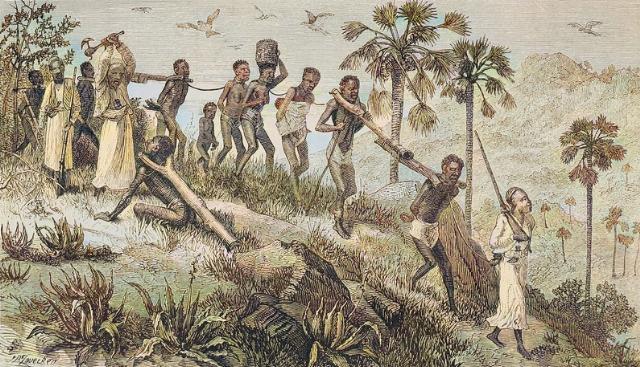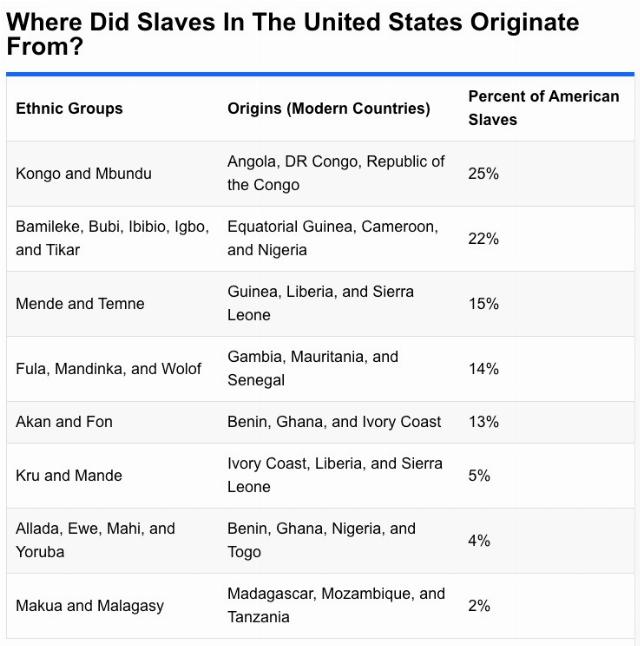Giving context (and reality) to the phrase ‘African American’
What does “African American” mean? Like its companion phrase, “Hispanic,” “African American” is a woke term that ignores historical reality and the complicated histories of the African and Latin American continents.
“African American” generally means someone whose ancestors came to America as slaves from Africa, a vast continent with myriad races and cultures. There are five countries north of the Sahara that generally do not fall into the black Africa category: Algeria, Egypt, Libya, Morocco, and Tunisia. These regions were involved in white slavery via the Barbary pirates (over 1 million European slaves estimated), and Congress re-established the U.S. Navy (dormant since the Revolution) to counter them.
There are 49 countries in sub-Sahara Africa, comprised of hundreds of tribes (thousands of languages), all of which have black populations. The last vestiges of white colonialism are swiftly vanishing.
So, where did those blacks who came as slaves to America originate? Generally, they came from sub-Saharan Africa’s central western region, where dominant tribes captured them and sold them to Muslim-run slave markets for Western purchasers.
These dominant tribes did not think of these slaves as their equals. They viewed them as sub-humans (from inferior tribes) that supplied a lucrative commodity. It is estimated that the slaver tribes captured as many as 20 million people, of whom some 10-15 million survived the march to the slave markets.

Image: African slave traders taking their slaves to market. Internet Archive Book Images. CC BY-SA 4.0.
King Gezo, in the 1840s, summarized how important the slave trade was to his Dahomey kingdom:
The slave trade is the ruling principle of my people. It is the source and the glory of their wealth…the mother lulls the child to sleep with notes of triumph over an enemy reduced to slavery…
The following list has the best guesses of tribes that saw their members captured and sold in America before Congress outlawed the international slave trade in 1807:

These tribes are quite different from one another. They are African only in the sense that they are from the African continent. The tribes’ members would never have called themselves “African.”
To say someone is African American is misleading and beyond. It is a classification designed solely for identity politics. In a scene from Crocodile Dundee, Mick Dundee asks Gus, the cab driver, what tribe he’s from:
If Gus had said he was from the Mbundu tribe, would he be Mbundu American? Of course not. He would be American and not a member of any tribe. We are not a nation of tribes unless we want to foster divisiveness for political gain.
The word “Hispanic” is another identity politics creation. Mexico, Honduras, El Salvador, and Guatemala, to name a few countries that fall under the Hispanic generic, are very different countries. These countries would never call themselves Hispanic, as though populations are homogeneous across countries.
The U.S. Census Bureau is committed to these travesties by measuring numerous so-called sub-populations. The only reason they are required to do this is to support tribalism, which leads to multiple targeted welfare programs. Why else do we need to know how many Pacific Islanders reside in America and dozens of other so-called sub-populations?
If you go to the Census Bureau’s homepage, you will find that the US Census Bureau is obsessed with race and ethnicity. However, our Founders never intended to divide the country into tribes via the Census. Instead, they needed a head count to determine the number of seats a state had in the House of Representatives, nothing more. If some group wants to focus on race and/or ethnicity, the private sector can provide this information.
Nowadays, it’s common to be faced with questionnaires in business, personal, and government settings asking that you identify your race and/or ethnicity. Unless that information is provably necessary for calculating the risk of certain medical conditions, I always answer “American.” You should, too.
Read More: Giving context (and reality) to the phrase ‘African American’

